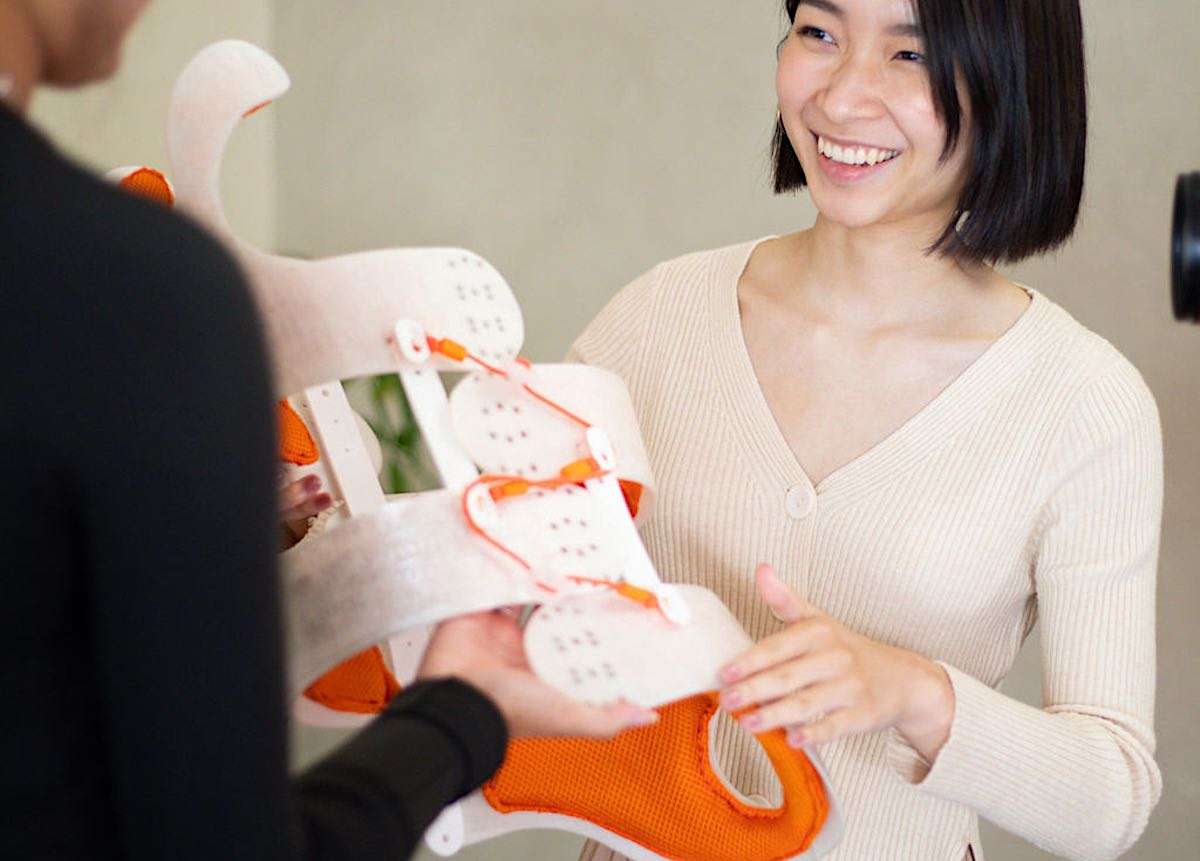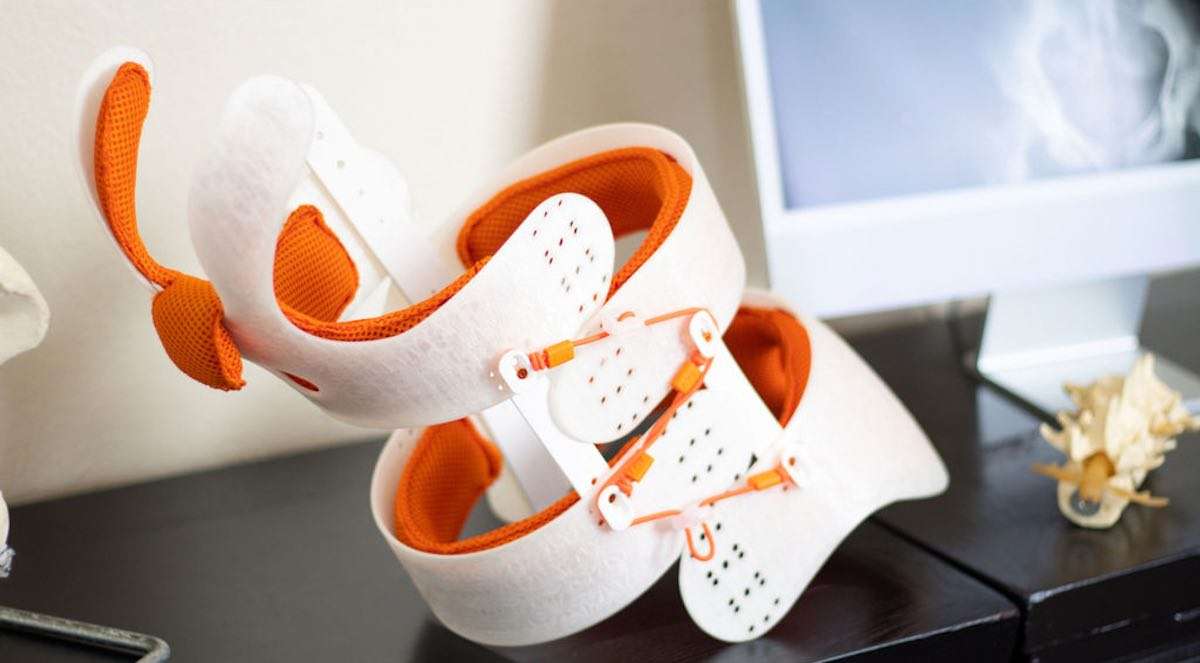Cold Water and Air Increase "Good" Body Fats Says a Review of More Than 100 Studies
Experts say the increasing popularity of cold exposure to air or water will have an impact on fats could prevent obesity.

A University of Cincinnati grad student has invented an adjustable brace for young patients who need to reposition their curved spines—winning a prestigious award for her design genius.
Impacting 7 million Americans every year, scoliosis is a curvature in the spine that often occurs before puberty. Despite the large number affected, advancements in braces that treat this medical condition have not been changed since the late 1950s.
Common braces are bulky, inflexible and—most importantly to teenagers—very noticeable, which can deter many youth from wearing the device as often as they should.
That's why Sangyu Xi won the American James Dyson Award for creating a novel prototype called Airy, a breathable, comfortable, and adjustable brace that can accommodate a patient's growth for up to three years.
Airy is even recyclable and includes an app to track wear time and healing.
The exterior color of Airy can also be modified or padding can be removed to make it translucent, allowing young patients to wear the brace confidently. After treatment, patients can donate the brace to third-world peers, or the brace can be recycled up to 10 times since no glue is used in the manufacturing process. (Watch the video below…)

The app also allows physicians to communicate with patients in real-time on any adjustments to treatment plans.
Since creating Airy, the prototype has been tested on four teen patients at Cincinnati Children's Hospital, where feedback was extremely positive.
The engineering and design student from China always knew she wanted to use her skills to create something that could help someone "have a different life."
"Winning this national award really means something to the scoliosis patients who are trying to call to people ‘we want something new that we want to wear and that can help us fight against scoliosis,'" said Sangyu.
In the future, she hopes to continue patient trials so she can perfect the prototype's design. She plans to use the Dyson Award prize to hire a machine learning engineer to further develop the Airy app, and an orthopedic mentor to help bring Airy to market. (Watch the video below…)
HELP Patients Stand Tall – Share This Breakthrough on Social Media…
Be the first to comment